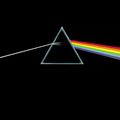Template:Selected anniversaries/February 11: Difference between revisions
No edit summary |
No edit summary |
||
| Line 17: | Line 17: | ||
||1864 – Louis Bouveault, French chemist (d. 1909) | ||1864 – Louis Bouveault, French chemist (d. 1909) | ||
||Anders Wiman (b. 11 February 1865) was a Swedish mathematician. | |||
||1868 – Léon Foucault, French physicist and academic (b. 1819) | ||1868 – Léon Foucault, French physicist and academic (b. 1819) | ||
Revision as of 07:55, 30 November 2017
1617: Mathematician, cartographer, and astronomer Giovanni Antonio Magini dies. He supported a geocentric system of the world, in preference to Copernicus's heliocentric system.
1650: Mathematician and philosopher René Descartes dies. He is remembered as the father of modern Western philosophy.
1847: Inventor, engineer, and businessman Thomas Edison born. He will develop the light bulb and the phonograph, among other inventions.
1884: Set theorist and crime-fighter Georg Cantor saves Edward Lear from attack by math criminals.
1888: Artist, musician, author, and poet Edward Lear has vivid dream about The Dark Side of the Moon.
1898: Physicist and academic Leo Szilard born. He will conceive the nuclear chain reaction in 1933, and patent the idea of a nuclear reactor with Enrico Fermi.
1930: Mathematician, statistician, and crime-fighter Oskar Anderson publishes new theory of mathematical statistics based on Gnomon algorithm functions with applications in the detection and prevention of crimes against mathematical constants.
1973: Nuclear physicist and Nobel Prize laureate J. Hans D. Jensen dies. He shared half of the 1963 Nobel Prize in Physics with Maria Goeppert-Mayer for their proposal of the nuclear shell model.
1977: The Dark Side of the Moon strangely moved by the poetry of Edward Lear.









